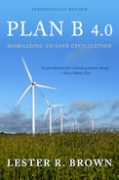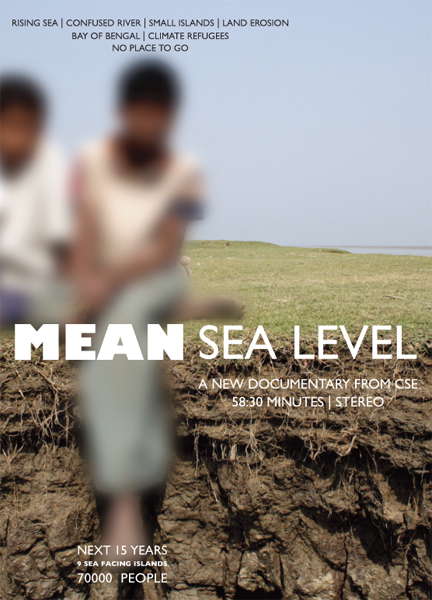/topics/climate-change
Climate Change
Climate change in India: Forgotten threats, forgotten opportunities - EPW paper
Posted on 02 Aug, 2010 01:12 AMThe document begins by commenting on the position taken by India in the global climate change discourse. India has consistently argued from the point of view of developing countries against restrictions on emissions that have been imposed on all countries globally, by stating that developing countries have started the industralisation processes recently and thus have contributed very little to the carbon emissions.
Thus, countries like India should not sacrifice their present development and growth for reducing global emissions. Any legitimate climate mitigation initiative should be just, equitable and secure developing countries' growth patterns.
The document argues that although India 's stand seems justifiable in the global discourse, the climate change issue is still a very sensitive one for India and India has the greatest to lose if it does not take proactive steps to deal with the issue of climate change in the future.
Salvaging and scapegoating: Slum evictions on Chennai’s waterways - EPW paper
Posted on 02 Aug, 2010 01:03 AMThe paper highlights the case of recent projects that have been planned on the river Cooum in Chennai.
Relevance of Meltwater in River Basin Hydrology
Posted on 23 Jul, 2010 10:53 PMA peer paper in Science Magazine focuses on the core of a riverine system, the upstream basin, and its impact on the entire river basin.
Providing a plan to save civilization - Books from the Earth Policy Institute
Posted on 11 Jul, 2010 05:24 AM Earth Policy Institute, is a non-profit environmental research organization dedicated to providing a vision of an eco-economy and a roadmap on how to get there. The Institute was founded in 2001 with the following goals:
Earth Policy Institute, is a non-profit environmental research organization dedicated to providing a vision of an eco-economy and a roadmap on how to get there. The Institute was founded in 2001 with the following goals:
- to provide a global plan (Plan B) for moving the world onto an environmentally and economically sustainable path
- to provide examples demonstrating how the plan would work, and
- to keep the media, policymakers, academics, environmentalists, and other decision-makers focused on the process of building a Plan B economy.
The basic research of the Institute has been published in the form of seven books:
Draft regulatory framework for wetlands conservation - Comments by ATREE
Posted on 09 Jul, 2010 11:49 PMThe Ministry of Environment and Forests released a draft of the regulatory framework for wetland conservation - Wetlands Conservation and Management Rules (2009) for feedback from all stakeholders. The draft framework was prepared by a multi-disciplinary expert group, and final round of comments were invited till June 21st 2010.
The Wetland Conservation Team of Ashoka Trust for Research in Ecology and the Environment (ATREE) did a detailed analysis of the draft regulation and submitted several pertinent concerns to the Ministry. The most significant observation is that the new framework (as do much of India's policies and laws) continues to propose unjustifiable State control and interventions over the country's wetlands and livelihoods of people dependent on them. The regulation does not make any constructive suggestions or recommendations for the conservation that the country's wetlands demand, and instead brings all wetlands into complete official control by installing Central, State and District-level wetland regulatory authorities, wherein the majority of the members will be senior government officials.
Screening of the film- Mean Sea Level. Directed by Pradip Saha for CSE, Bangalore
Posted on 07 Jul, 2010 10:45 AM
Organizer: Pradip Saha
Topic: Screening of the film- Mean Sea Level. Directed by Pradip Saha for CSE
Venue: Alliance Francaise De Bangalore
Description:
Around 7500 Kms from the heart of the Intergovernmental Panel on Climate Change [IPCC] in Geneva or the United Nations Framework Convention on Climate Change [UNFCCC] secretariat in Bonn, Ghoramara and Sagar islands are going through their own testimony of climate change related phenomena.
Sensitivity analysis of melt runoff due to temperature and precipitation – A research report by National Institute of Hydrology
Posted on 06 Jul, 2010 11:36 PMThe study aims to assess the impacts of various climate scenarios on the hydrological response of the high altitude Spiti river in the Himalayas. The climatic scenarios were constructed on the basis of simulations of the Hamburg coupled atmosphere-ocean climate model for the study region.
Orissa, the first state to draft the Climate Action Plan
Posted on 02 Jul, 2010 04:42 PMOrissa becomes the first state in the country to have earned the distinction of having action plan on climate change. Following the National Action Plan of India started in 2008 the document of Orissa provides the action for the period of 2010-2015 having a budget of 17,000 crore.
Hydrological problems of India – A compilation of news items for the year 1997-98
Posted on 01 Jul, 2010 02:10 PMThis report is a compilation of the hydrological news in the print media in the country for the year 1997-98. The report is an attempt to put forth diverse hydrologic information and events reflecting the problems and indicate solutions for hydrologists, planners and water resource managers in particular. Five national newspapers like Hindustan Times, Indian Express and Hindu etc., have been referred to, for tracking the Indian hydrological events due to flood, drought, quality, demand supply and availability.
Remote sensing and GIS applications in zonation of waterlogging in command areas – A research report by the National Institute of Hydrology
Posted on 21 Jun, 2010 04:48 PMThe study assesses waterlogging in a canal command area in Rohtak and Jhajjhar districts through waterlogging area zonation using multi-spectral and multi-temporal imagery like IRS LISS III data of pre and post monsoon period. Seasonal and permanent waterlogged area and standing water were delineated on the basis of remote sensing data, digital elevation model and groundwater data.





